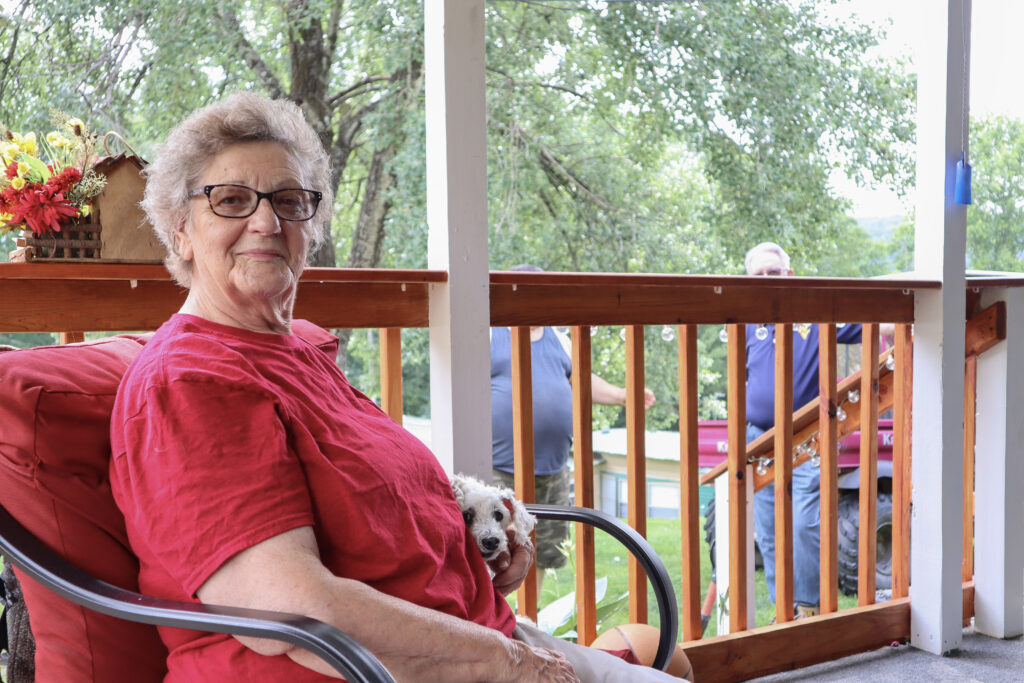
From her shaded porch, perched on a scenic ridge high above Jug Hollow in Wyoming County, Aster Marie Austin waves a friendly hello when she sees Junior Orndorff and Bob McKinney pull up in their Dig Deep trucks.
Just a few weeks earlier, as Orndorff and others worked to connect Austin’s home to a new water line, she cooked them a spaghetti dinner.
“They’ve been so nice to us,” Austin beams. “We just can’t express how happy we are about this. And to know there’s a fire hydrant close by now, too!”
Hers is one of several homes in the Herndon Heights neighborhood that Dig Deep — a human rights nonprofit serving the more than 2.2 million Americans without access to clean drinking water — has connected to safe water through its Appalachian Water Project.
Austin lives in one of the 400 residences in Wyoming and McDowell counties that Bob McKinney, director of Dig Deep’s Appalachian Regional Project, is on a mission to help. And it’s a mission that may get just a little easier, thanks to a new resolution passed at the West Virginia United Methodist Church Annual Conference on June 10.
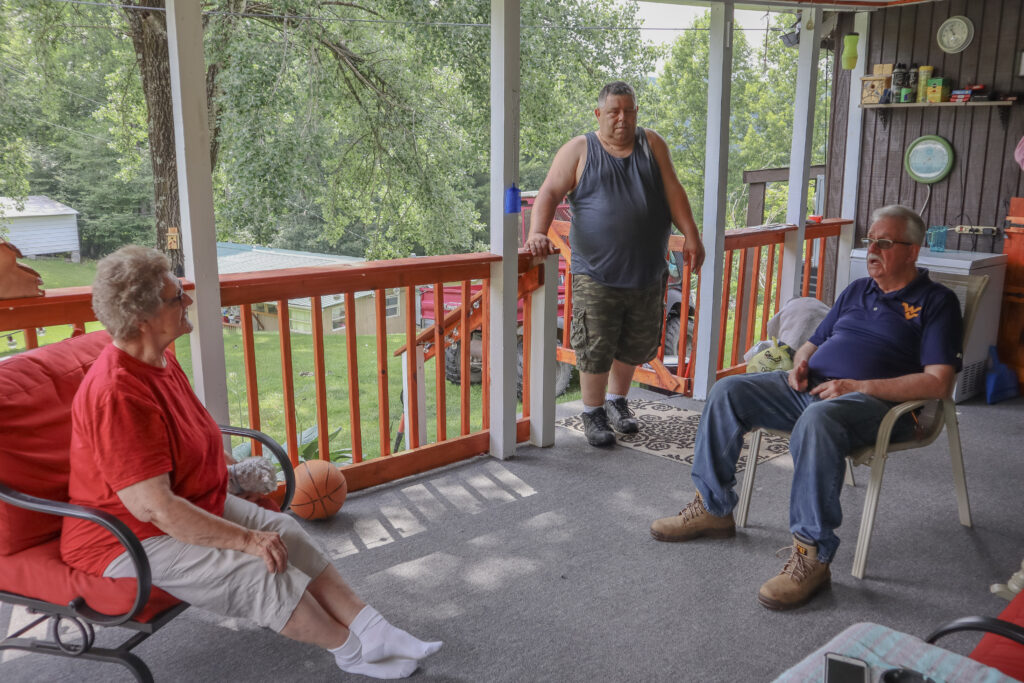
The West Virginia Clean Water Resolution creates a fund within the United Methodist Foundation of West Virginia for the establishment of sustainable potable water systems for rural communities in southern West Virginia. The resolution also supports Dig Deep and encourages individuals and congregations to give generously to the fund. (Click here to read the resolution)
“My husband built this house 54 years ago,” Austin explains, “and he had to haul water up here for years. It wasn’t really too hard on him until he got disabled and couldn’t do it.”
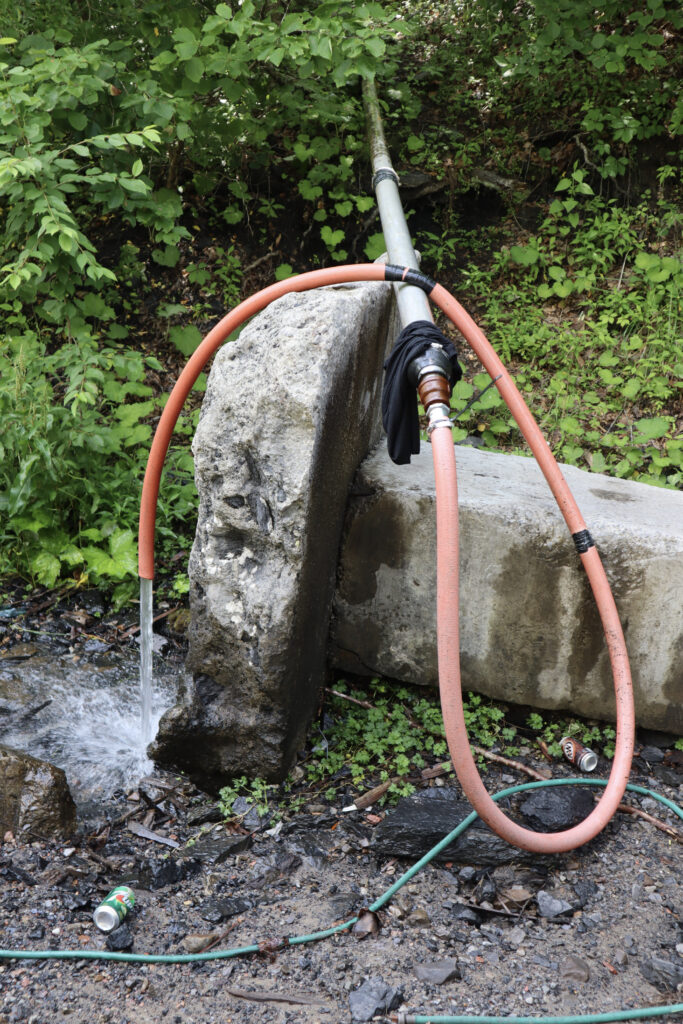
Neighbors helped. In fact, some of them decided they could all benefit from water they didn’t have to drive all the way down to the hose at the creek by the tracks to get. So, a while back, they built their own neighborhood water system and bought water from a nearby PSD (Public Service District). Some connected. Some didn’t. But it was never all that dependable. When the power would go out, so, too, would the water. Over the years, pumps failed, pipes needed replaced, supply became contaminated. Most of the time, the residents continued filling their jugs down at the hose that draws from the mine shaft overflow.
“We were pretty bad to just dump some Clorox in it,” neighbor Angie Griffith admits.
Griffith says that when their connection line first broke, her family was able to fix it. But when it broke again, they simply couldn’t afford to keep making the same repairs. They went back to the old ways. Recently, the local PSD put in a new main line, and when Dig Deep offered to help in-need residents connect to it free of charge, she and Tom Lusk jumped at the chance.
“There’s a lot of people up here that this has really helped,” she says, pointing out homes of disabled and retired neighbors — one raising her great-grandchildren, another an amputee, a third an elderly man on oxygen.
“This water, it was Godsent. It really was,” Lusk says. “There’s some people up here that ain’t ever really had water.”
Wayne Bishop recalls all too well what it was like before he could turn a knob in his home and watch clean water flow.
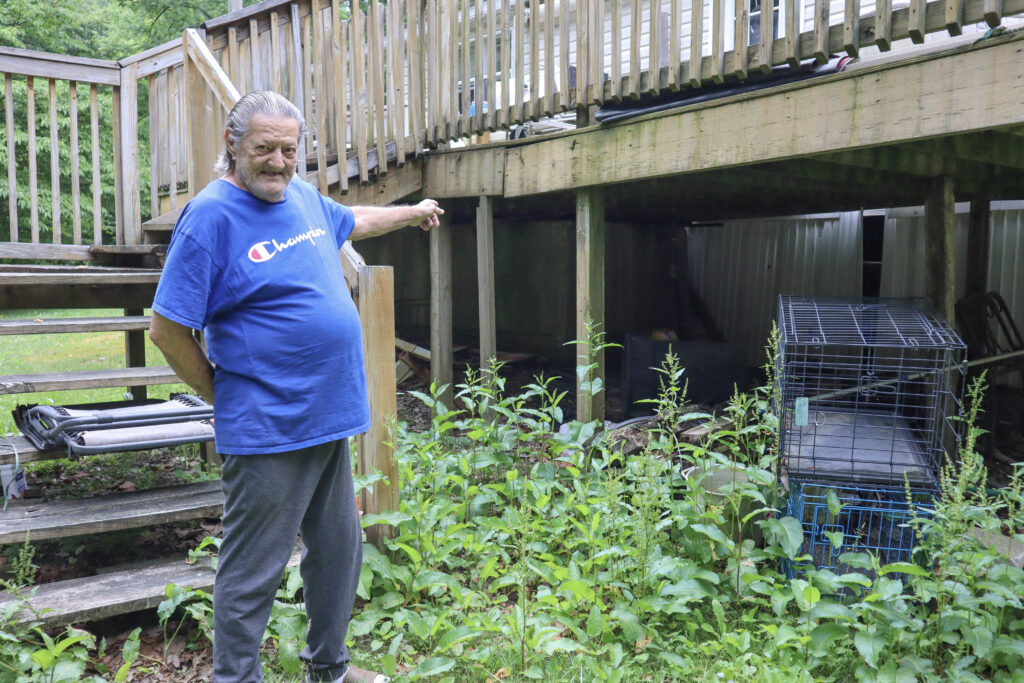
“I’m a country boy, born and raised on this water,” he says, pointing out the big concrete cistern behind his house that he still fills with rain and the run-off mine water that spills from the hose down at Jug Hollow. “Everybody hauled water, and Mondays was tough.”
Mondays were wash days.
“This is a lot better, though,” he says, watching contractors working with Dig Deep use a Ditch Witch in his front yard to connect him to the new line.
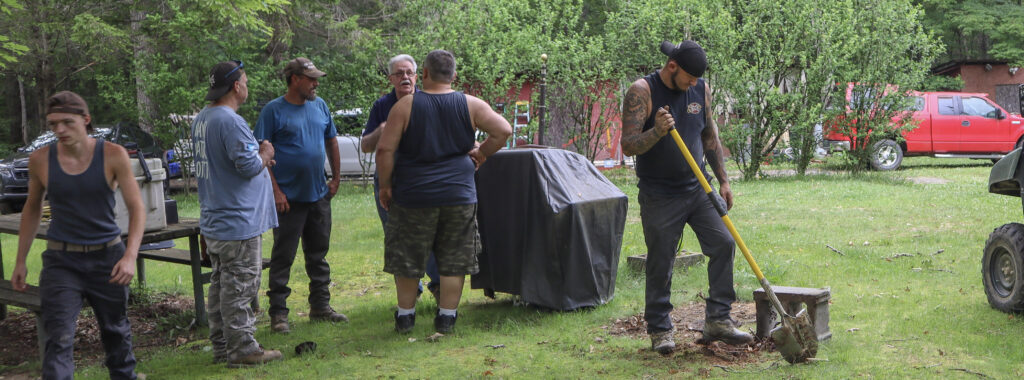
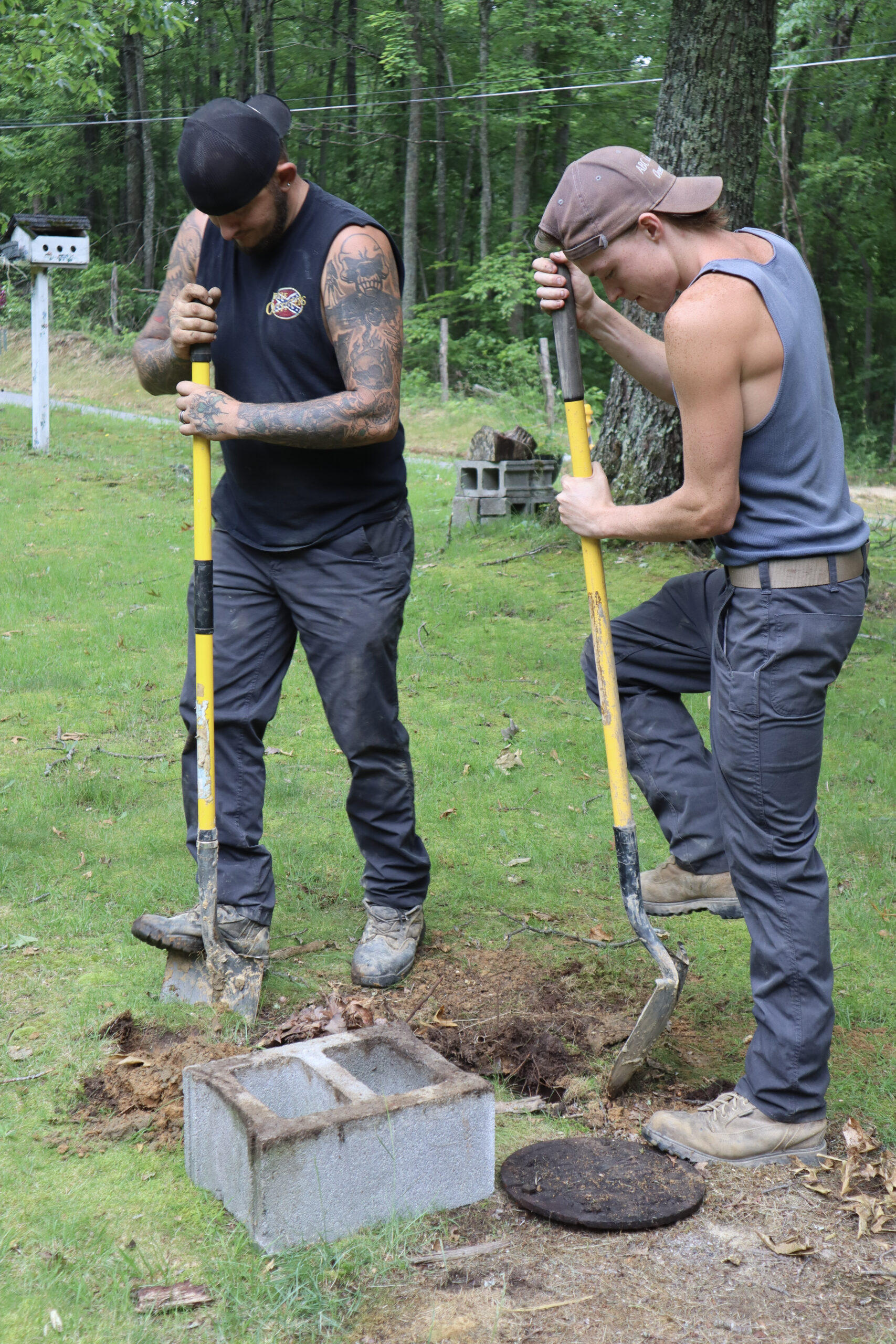
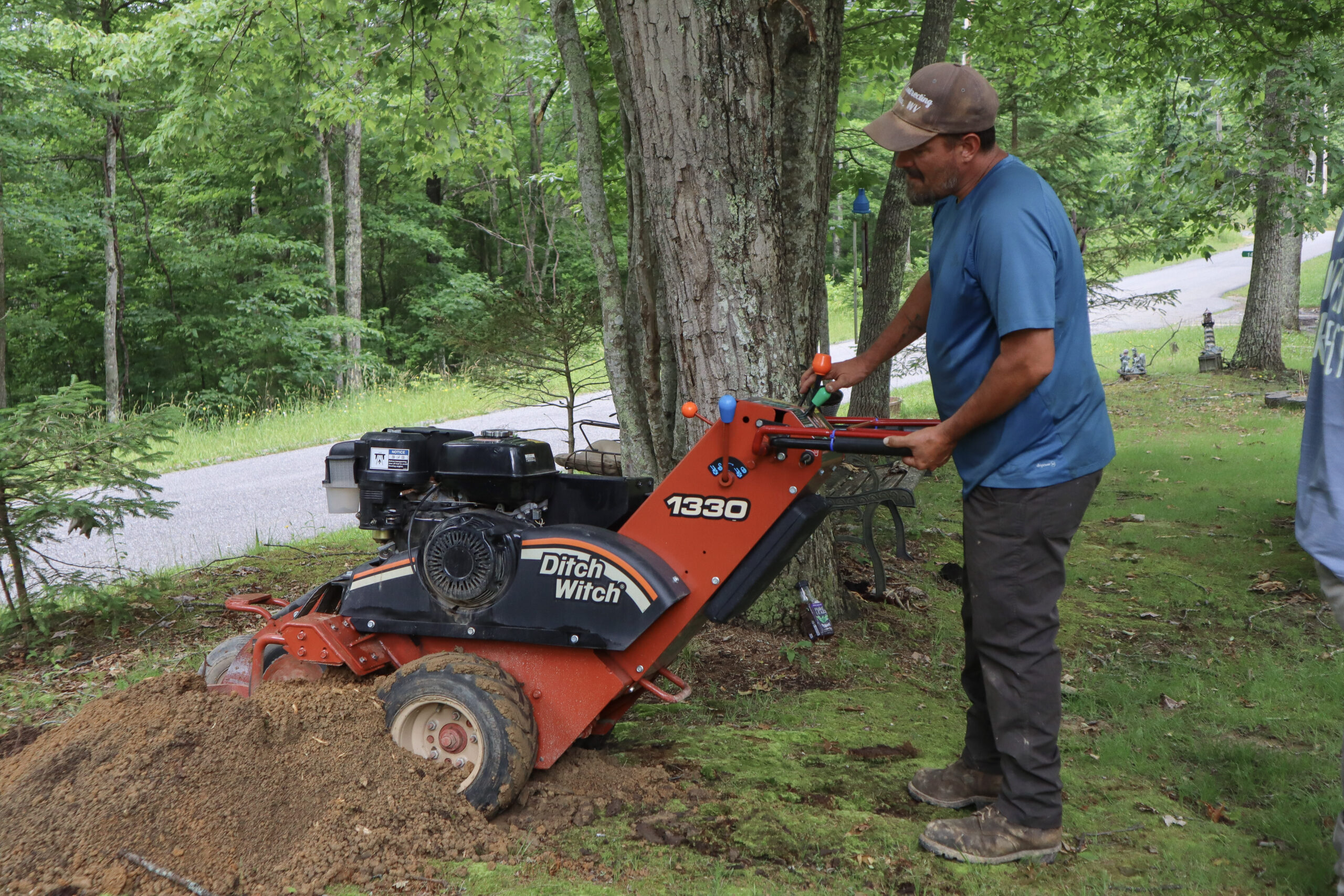
McKinney explains that these residents and roughly 90 others nearby simply needed help — financial and physical — to connect to a new main water line. Still, others Dig Deep is helping throughout Wyoming and McDowell counties are receiving the first access to clean, running water they’ve had in their lives.
In neighboring McDowell County, in the last two years, Dig Deep has connected almost 200 homes to clean water. Some had never been connected, and many who were connected had been living under a boil water advisory for nearly a decade, McKinney explains.
“Some have wells or are hooked up to an old system. Many of these lines were laid 100 years ago by the coal mines. They’re rupturing,” McKinney says. “Wells can sometimes be contaminated. Old pipes have issues.”
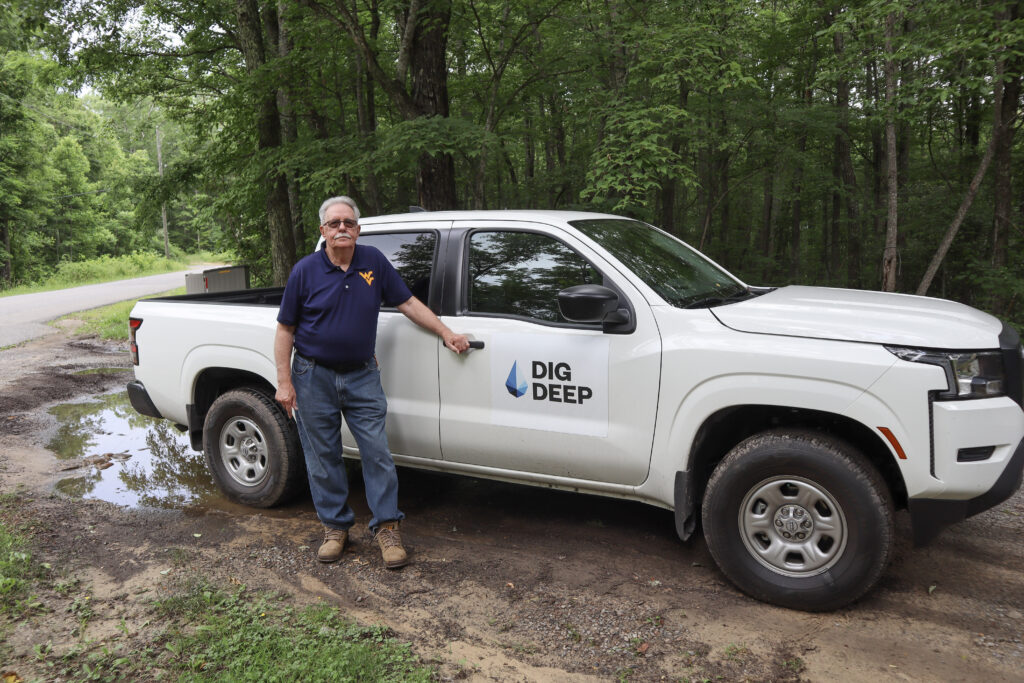
Dig Deep does not put in the main water lines; they simply help people connect to them.
“The PSD is instrumental in getting main water lines run, then we help run lines from the main line to the home. And we pay for it,” McKinney says.
And if paying the local PSD for that water is also a hardship, Dig Deep can help there, too.
Residents are not required to hook into the PSD for water, and some choose not to do so, “but most have allowed us to help.” In an area around Keystone, McDowell County, 198 out of 210 residents opted to let Dig Deep assist.
Dig Deep employees interview residents to determine if there is a financial need. “And around here, there always is,” McKinney says.
That’s exactly why the West Virginia Clean Water Resolution was necessary, Southern District Superintendent Chip Bennett says.
“It’s water. A basic necessity of life,” says Bennett, who proposed the resolution at annual conference on behalf of the Southern District Lead Team. “There are so many things that divide us right now — in our country, in our church. Good grief, if there’s one thing that we all ought to be able to get behind, it’s that people have access to clean drinking water.”
Even before his involvement with Dig Deep, McKinney saw that need. He just wasn’t aware how great it was. His wife, Linda McKinney, runs the Five Loaves and Two Fishes food bank at Kimball, in McDowell County.
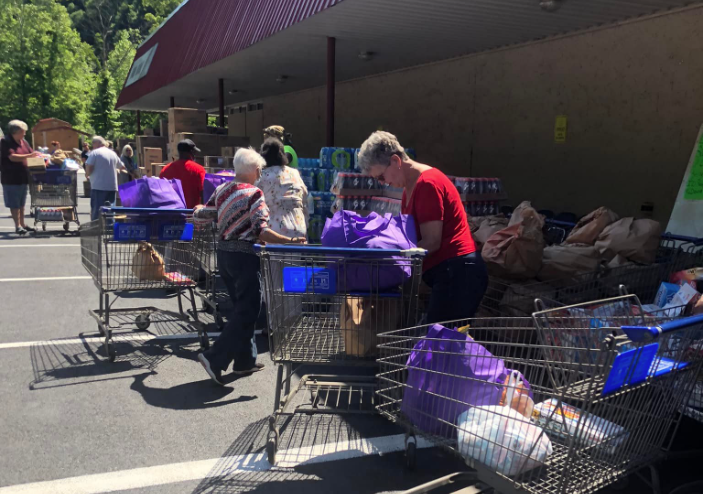
(Day of Service 2022)
“People would come and get food at the food bank and they would tell Linda, ‘We sure could use some clean water,’ ” Bob says.
A few years ago, Dig Deep sent a photojournalist to the area. As others — including the late Anthony Bourdain and TV personality Mike Rowe — have done in an effort to share and improve the plight of coalfields, the journalist turned to the food bank for information. Little did the journalist know he had stumbled onto a person uniquely suited to help Dig Deep bring its services into the Appalachian region.
Bob McKinney not only volunteered at the food bank with his wife, he had been a water plant operator, a master electrician, a certified vocational instructor and held multiple certifications in other areas. Additionally, his experience as a retired part-time local United Methodist pastor and a state mine inspector gave him an intimate knowledge of the area.
“So, as I was showing this person around, I couldn’t believe what I was seeing,” McKinney said. “There is a need, and I’m sorry to say I was oblivious to just how bad it was.”
Dig Deep offered McKinney a position overseeing their work in the region, and he left his state mine inspector job to take it.
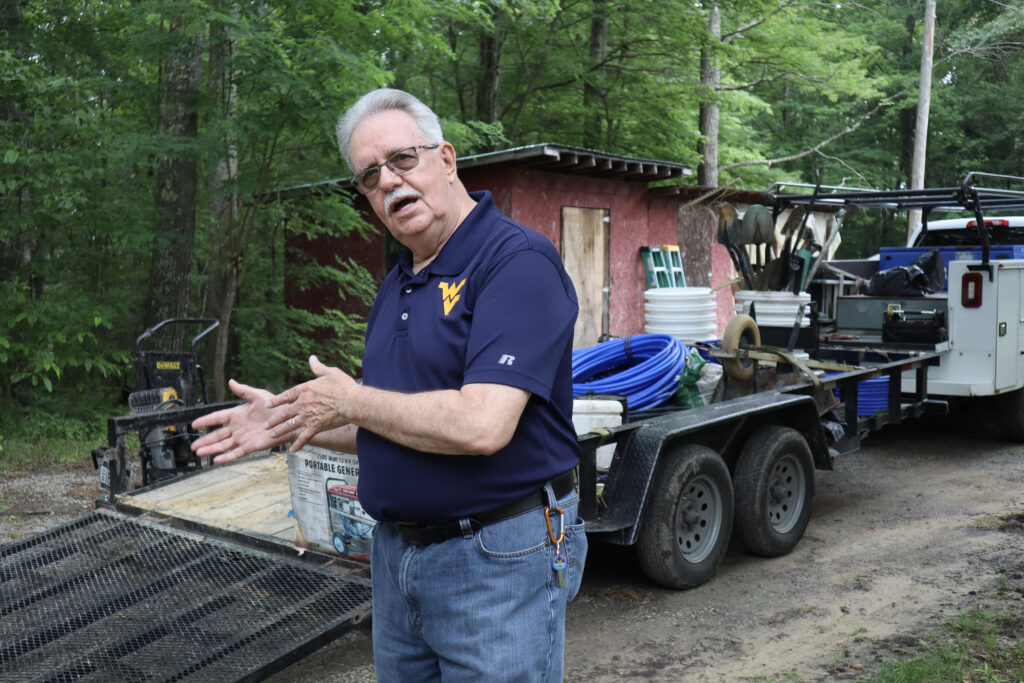
“My experience — it all led to the water,” he says. “I’m 75 years old. If I can make an impact where I can help people get clean water and sewer — water, sanitation and hygiene — then that’s my ministry.”
And it fits hand-in-hand with his wife’s.
“God has really been good to us,” McKinney says of Five Loaves and Two Fishes and Dig Deep (which quickly outgrew its first regional office at the food bank but continues operating solar Hydropanels there). He notes the contributions of celebrities — including Aquaman himself, Jason Momoa — the 700 Club, and the awarding of grants.
But it’s not enough.
Next year, McKinney plans to submit a $3 million budget to Dig Deep to continue the work in McDowell and Wyoming counties and expand services into other southern West Virginia counties. He says he needs to increase his staff of seven and continue training them so that they don’t always have to hire contractors to help do the digging and connecting. Other counties in the region are already asking for Dig Deep’s help.
“There’s about 15 additional projects I could be doing right now if I had the people and the materials,” McKinney says.
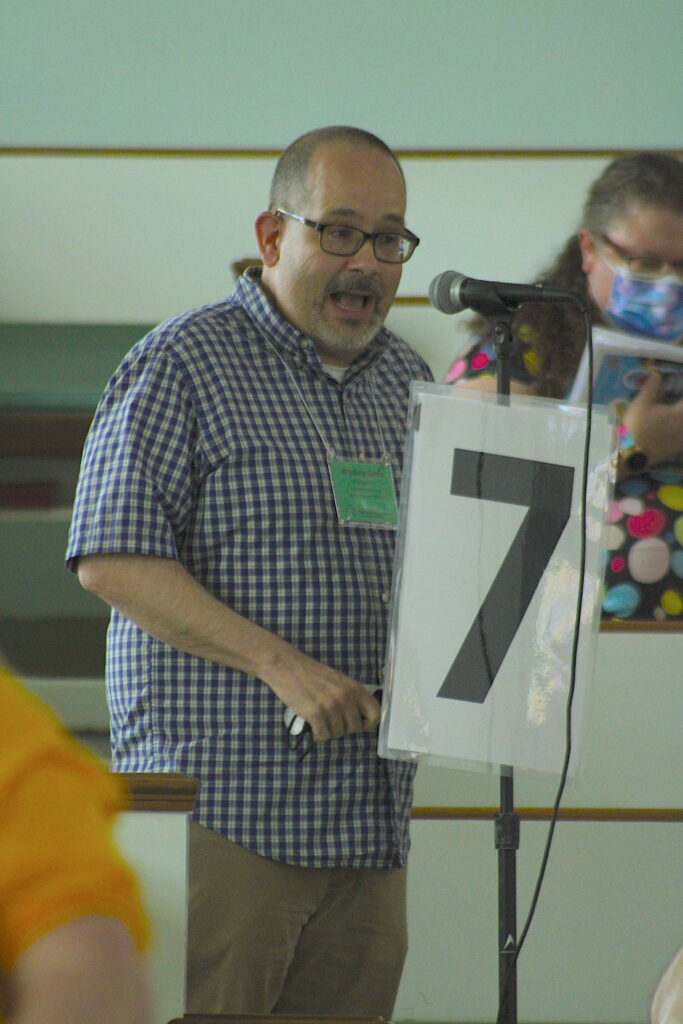
Rev. Brad Davis, who pastors churches in the southern West Virginia coalfields and spoke in favor of the resolution on behalf of the Justice and Advocacy Committee, says such projects are essential and should have church support.
“Without access to clean water, both individuals and communities cannot thrive,” Davis says. “It goes without saying that without access to water, you don’t have access to being healthy.”
He calls the resolution “a small step in helping to heal our community in this part of the state.”
“Once the coal industry began to decline and pull out, the people were left behind and abandoned, and the infrastructure collapsed,” Davis explains. “ … It’s hard for me to wrap my mind around the fact that in 2022, we still have communities that do not have access to clean water.”
Davis points out that until very recently, parts of McDowell County had been under boil advisories since 2013.
“There are 8-year-old kids in those communities that have never known what it’s like to not have to boil their water,” Davis says.
“If we believe that God intends for all of life to flourish and for all communities to flourish, and if we believe that clean water, which is a gift from God, is essential to that flourishing of life, then we have, as followers of Jesus, a moral imperative to do whatever we can to make sure that our neighbors, our communities, have what they need to live the lives that God intends for them to live, and that includes clean water.”
Davis says he would like to see more people of faith not only help Dig Deep, but bring other infrastructure issues to the forefront, because they are all connected.
“Without those things — clean water, food, access to healthcare — you have a people who really have no hope for a future,” Davis says. “And this is why you see the addiction crisis that has so gripped and devastated this part of the state, because people don’t have any hope. And we, as followers of Jesus, are supposed to be a people of hope, a people of resurrection.”
****
Follow this link to make a donation to the West Virginia Conference Dig Deep Water project. Be sure to specify Clean Water in Southern District.
Follow this link to email Southern District Superintendent, Chip Bennett for more information about how you can participate in upcoming Dig Deep projects.
Follow this link to learn more about Dig Deep.